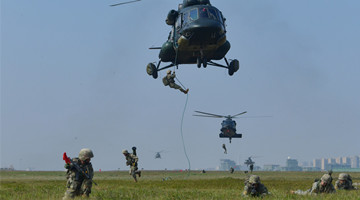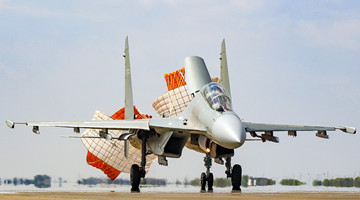There are plenty of causes for concern about present and future global security. But the existing international arms control regime and the treaties underpinning it are not among them.
Contrary to the present United States administration's claim that they are to blame for the world's security problems, they have served countries well by creating and sustaining strategic equilibrium and explicit codes of conduct.
The US administration's successive moves to demolish the framework of US-Russia strategic agreements constitute a severe threat to global strategic balance and security, and are a potential source of trouble for countries all over the world.
In May, a Russian government spokeswoman accused Washington of sabotaging global strategic equilibrium, blaming the latter for unilaterally withdrawing from the Intermediate-Range Nuclear Forces Treaty and the Treaty on Open Skies, and for refusing to ratify the Comprehensive Nuclear-Test-Ban Treaty. As she said, the only one left between the US and Russia is the Measures for the Further Reduction and Limitation of Strategic Offensive Arms, or New START.
Since the White House has turned down Moscow's proposal of unconditionally extending New START, which expires in February 2021, for one year, that last cornerstone will be gone. No wonder the chairwoman of the Federation Council of Russia warned the "impulsive" move may end up "destroying the entire regime of global strategic stability and security".
The current US administration has fully demonstrated its destructive potential over the past more than three years. The further it goes down that path, the deeper it will sink the world, and the US itself, into the mire of strategic instability.
That certainly has to do with the administration's signature "America first" credo, which turns their country against both historical allies and perceived rivals. Its reckless pursuit of unilateral, all-round, and asymmetric advantages for the US, and the coercive approach to achieving them threaten foes and allies alike. It has not only quit hard-earned international agreements such as the Iran nuclear deal, it is also pressing its closest allies to rewrite longstanding agreements to make them more beneficial to the US.
An even bigger threat to global security, however, lies in the present US administration's strategic thinking, which appears to originate directly from a Cold War-era playbook. Having identified China and Russia as rivals of the US and revised US policies accordingly, Washington is keen on containing both. US Secretary of State Mike Pompeo's tireless alliance-building efforts throughout the "Indo-Pacific" cannot but invite China to reciprocate in kind. The US efforts to drive wedges between China and its neighbors will inevitably undermine peace and security, and create fresh flashpoints in the region.
It is clear who is upending the postwar world order.









